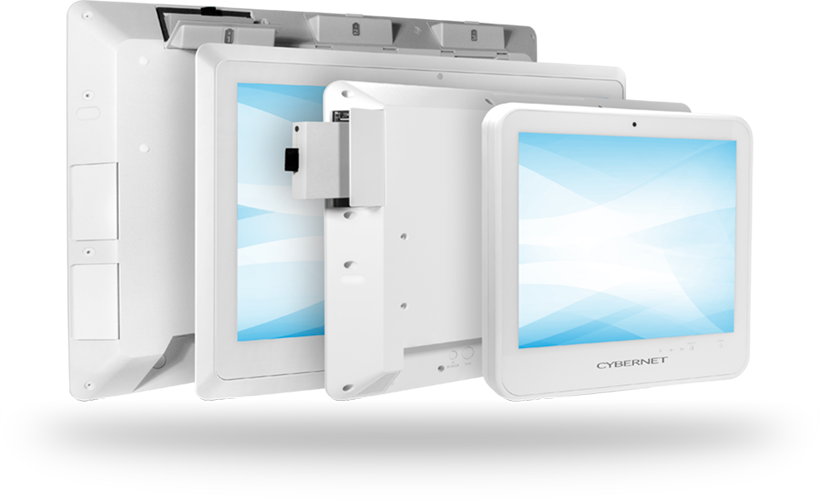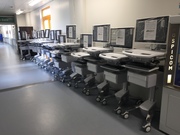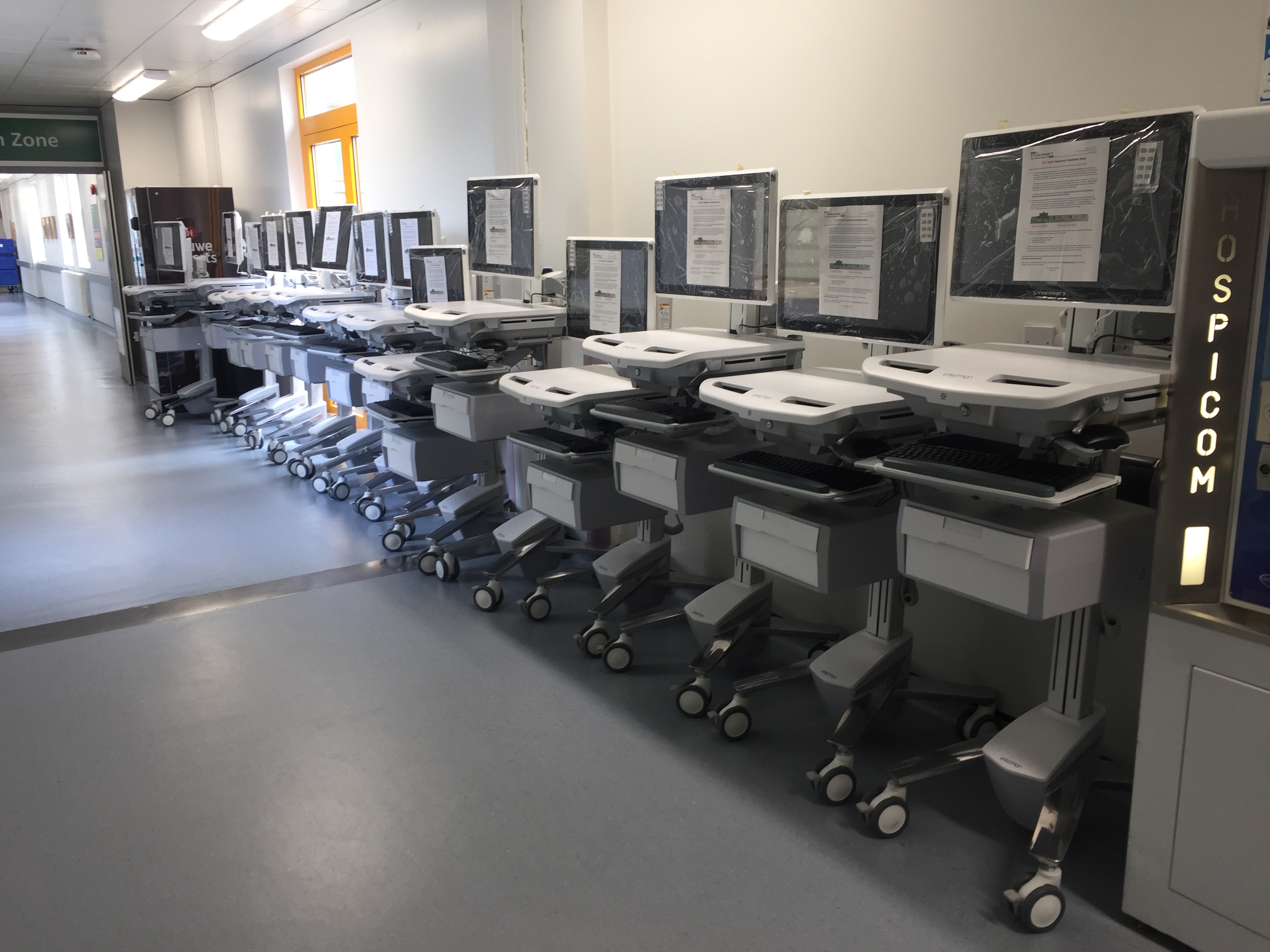UK National Health Service Chooses Cybernet Medical Computers

-
MILTON KEYNES GENERAL NHS FOUNDATION TRUST
- Industry: Healthcare
- Product: CyberMed NB24
- HQ: Milton Keynes, UK
 Challenge
Challenge
Milton Keynes University Hospital was using around 70 cart computers, all of which combined consumer-grade PCs and heavy powered carts. These powered carts were difficult to maneuver, which caused a problem with the hospital’s new bedside patient education policy. It wasn’t easy to slide a chunky cart to every single patient bed.
Their new EMR system, eCARE, also required more available computers spread throughout the hospital to allow full, unadulterated access for all clinicians.
The 70 carts they did have operated off lead-acid batteries that were becoming increasingly obsolete in the world of lithium-ion batteries. They’d become more expensive to replace, they didn’t hold a charge as well, and moreover were exceedingly heavy and cumbersome.
The walls of the hospital, both in the hallways and exam rooms, were also packed with storage and equipment, making it tough to find a good place to charge the carts. Combined with an increasing need and slower recharge time, it had become clear that a new solution was in order.
 Solution
Solution
Milton-Keynes University Hospital’s initial research on modern cart computers lead to two vendors: Cybernet Manufacturing and Onyx. MKUH ordered demo units of both options and put them through their paces to determine which would have the power, battery life, and streamlined portability they would need.
It eventually became clear that they were going to choose the Cybernet NB24, for a few clear reasons. For one, the Cybernet cart computers had three hot-swappable batteries instead of the Onyx’s two, allowing for not only greater versatility in how the computers are used but in having demonstrably longer up-times on a single charge. The Cybernet models also came referred by Ergotron, the manufacturer of medical carts and mountings, giving them a stronger pedigree.
One of the other features that MKUH appreciated was the DC power out from the Cybernet models, which allowed for easy powering of peripherals like MKUH’s Zebra printers that are used on a regular basis.
 Results
Results
After choosing Cybernet, Milton-Keynes University Hospital was able to extend its stable of medical cart computers from 70 to over 250 units due to the reasonable price point and the long-term savings gained from not having to buy powered carts. The smaller footprint and easier hot-swappable batteries mean they didn’t have to worry about finding a charging spot or a free power socket in already packed exam rooms and hallways.
The batteries were so effective for keeping computers constantly running that MKUH is even considering removing power leads from the cart to prevent them from ever being plugged straight into the wall.
These carts were able to be deployed across the facility, allowing for the further expansion of the eCARE EMR system and to better arrange a patient bedside education program.
After a year of use, MKUH found all computers still working well, with only a 2-3% failure rate, which is well below standard computer failure rates and right in line with Cybernet’s usual projections.
It makes life easier to run the Cybernet computers straight off the batteries. If you get a nice system of managing them, the batteries on the monitors never run out.
- Marc Beckett, Head of IT
MILTON KEYNES GENERAL NHS FOUNDATION TRUST


